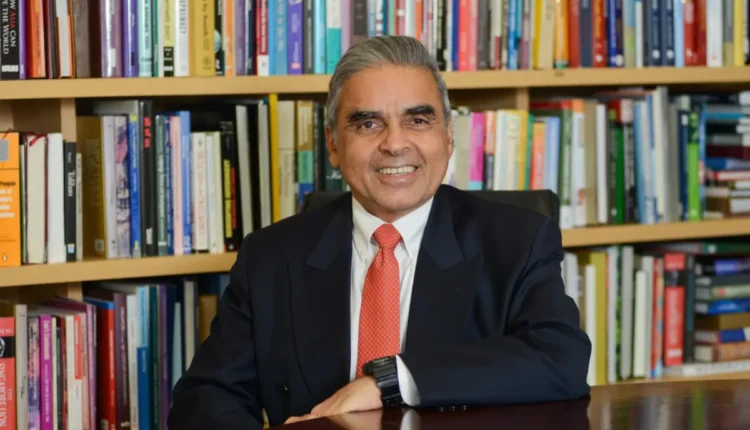Kishore Mahbubani, an esteemed Singaporean diplomat and geopolitical consultant, has left an indelible mark on international relations. From serving as Singapore’s Permanent Representative to the United Nations to leading the Lee Kuan Yew School of Public Policy, his career has been defined by intellectual rigor, strategic foresight, and an unyielding commitment to fostering global understanding. His influence extends beyond diplomacy, positioning him as one of the world’s leading thought leaders on Asian and global affairs.
Early Life and Education of Kishore Mahbubani: A Foundation for Greatness
Born on October 24, 1948, in Singapore to a Sindhi-speaking Hindu family displaced by the Partition of India, Kishore Mahbubani’s journey is a testament to resilience and intellectual excellence. His early education at Tanjong Katong Technical School and St. Andrew’s School set the stage for his academic brilliance. Awarded the President’s Scholarship in 1967, he pursued a Bachelor of Arts with First-Class Honors in Philosophy from the University of Singapore (now the National University of Singapore).
Furthering his intellectual pursuits, he earned a Master of Arts in Philosophy from Dalhousie University in 1976. His commitment to knowledge was later recognized with an honorary Doctor of Philosophy from the same institution in 1995. These academic achievements laid the groundwork for his influential career in diplomacy, academia, and thought leadership.
A Distinguished Career in Diplomacy
Kishore Mahbubani’s career as a foreign service officer began in 1971 with Singapore’s Ministry of Foreign Affairs (MFA). His early diplomatic assignments took him to Cambodia, Malaysia, and the United States, where he honed his geopolitical acumen. His leadership was evident as he ascended to the role of Permanent Secretary at MFA from 1993 to 1998.
Kishore Mahbubani twice served as Singapore’s Permanent Representative to the United Nations (1984-1989 and 1998-2004), a role in which he played a pivotal part in shaping international diplomacy. His tenure saw him assume the esteemed position of President of the United Nations Security Council in 2001 and 2002, during which he provided strategic insights on global peace and security.
A Pioneering Academic Leader
Transitioning from diplomacy to academia, Kishore Mahbubani became the Dean of the Lee Kuan Yew School of Public Policy at the National University of Singapore (2004-2017). Under his stewardship, the institution became a hub for fostering innovative governance and public policy discourse. His tenure was marked by significant global partnerships and intellectual contributions, reinforcing Asia’s role in shaping the future of governance.
As a Distinguished Fellow at the Asia Research Institute, Kishore Mahbubani continues to influence policy debates and mentor future global leaders. He has also contributed as a senior advisor and scholar at prestigious institutions like Harvard University’s Ash Center for Democratic Governance and Innovation.
An Esteemed Author and Global Thought Leader
Kishore Mahbubani’s intellectual contributions extend beyond academia through his thought-provoking books. His writings challenge conventional Western perspectives and advocate for a balanced global order. Some of his most influential books include:
- Can Asians Think? – A critical exploration of Asia’s intellectual and geopolitical rise.
- The New Asian Hemisphere: The Irresistible Shift of Global Power to the East – Analyzing Asia’s growing influence in global affairs.
- Has China Won? – A compelling examination of US-China relations and the future of global power dynamics.
His articles have appeared in renowned publications such as Foreign Affairs, The New York Times, The Financial Times, and Time Magazine, reinforcing his stature as a leading geopolitical analyst.
Global Recognition and Honors
Mahbubani’s contributions have earned him numerous accolades, including:
- Public Administration Medal (Gold), Singapore (1998) – Recognizing his distinguished public service.
- Foreign Policy Association Medal (2004) – Celebrating his diplomatic excellence.
- Top 100 Global Thinkers by Foreign Policy (2010 & 2011) – A testament to his intellectual impact.
- American Academy of Arts and Sciences Member (2019) – Recognizing his scholarly contributions.
- Board Member of the African School of Governance, Kigali (2024) – Showcasing his commitment to global governance education.
His name is also honored at the United World College of South East Asia (UWCSEA), where a library is dedicated to him.
A Life of Inspiration and Enduring Legacy
Beyond his professional achievements, Mahbubani’s life is enriched by his deep appreciation for philosophy, jogging, and classical music. He attributes his clarity of thought to the music of Mohammed Rafi, a nostalgic connection to his childhood.
Even personal challenges, such as undergoing a double heart bypass operation in 2016, have not deterred him from his mission to influence global thought and policy. His resilience serves as an inspiration to many aspiring diplomats, scholars, and leaders.
Also Read : Rishi Budhrani: A Visionary in Comedy and Storytelling

